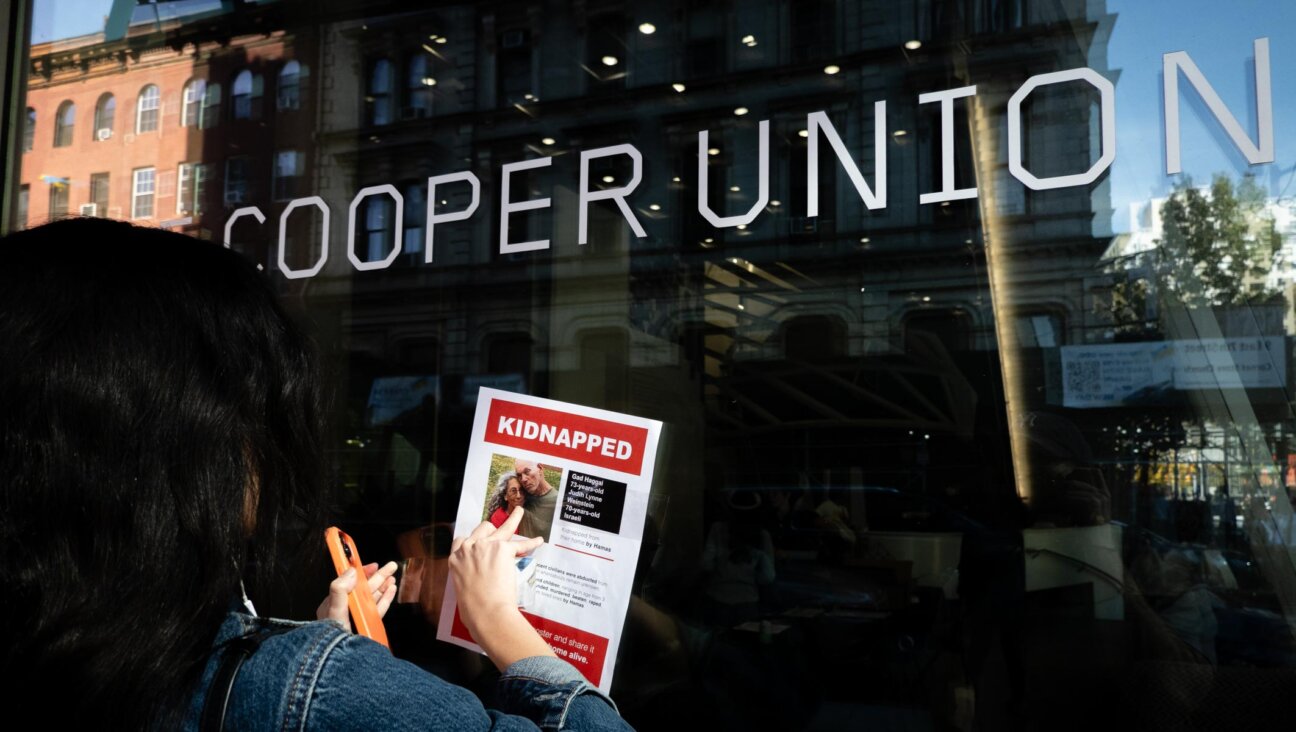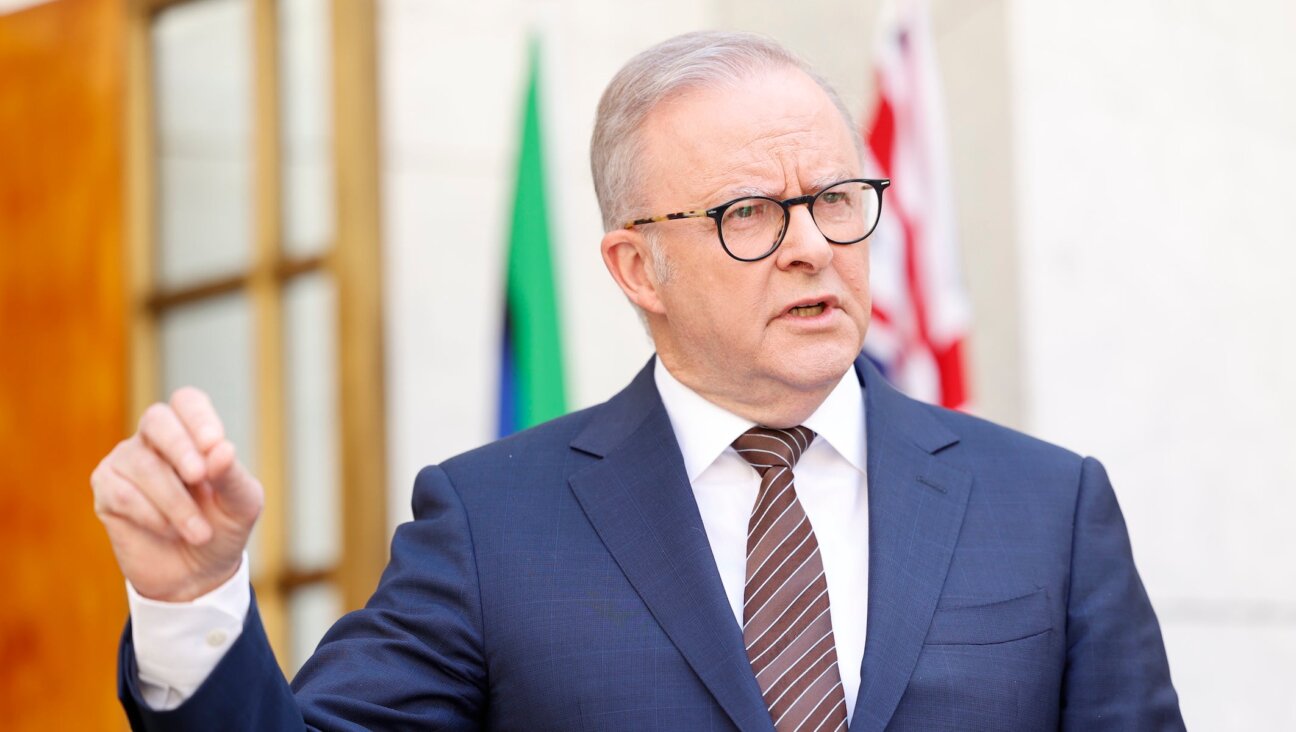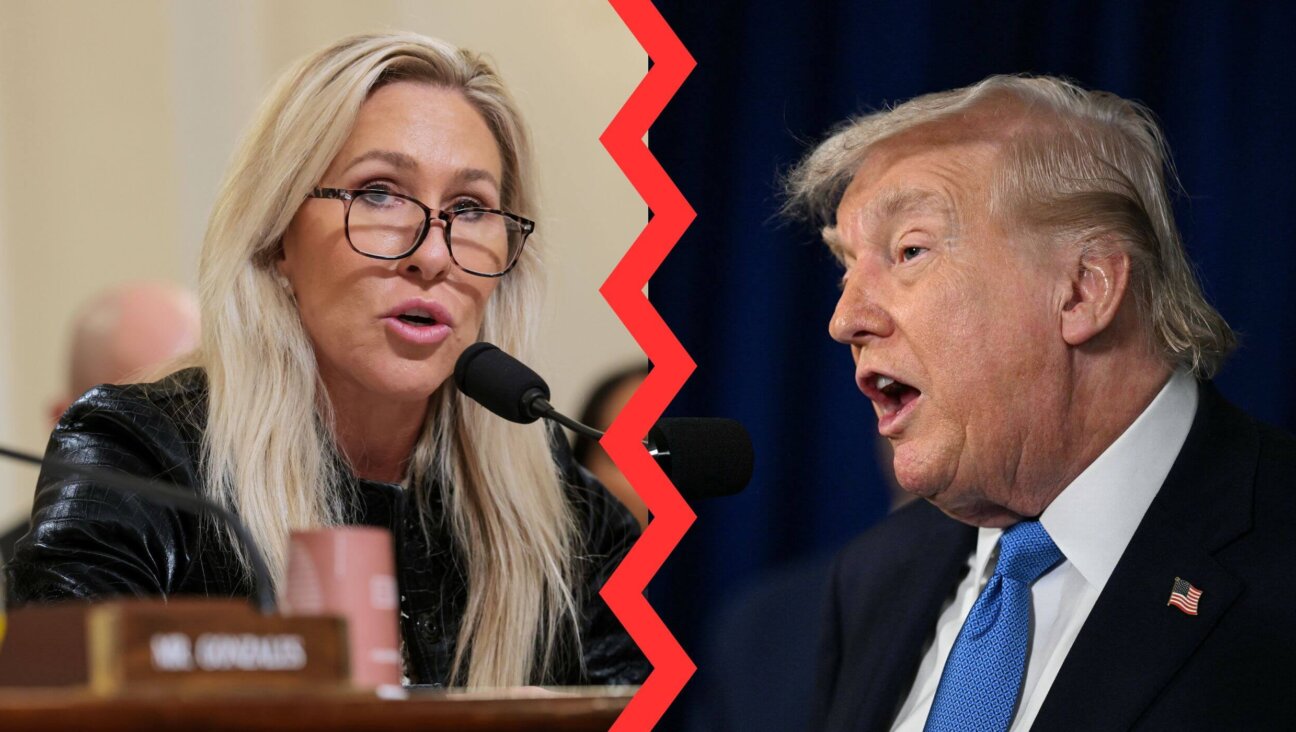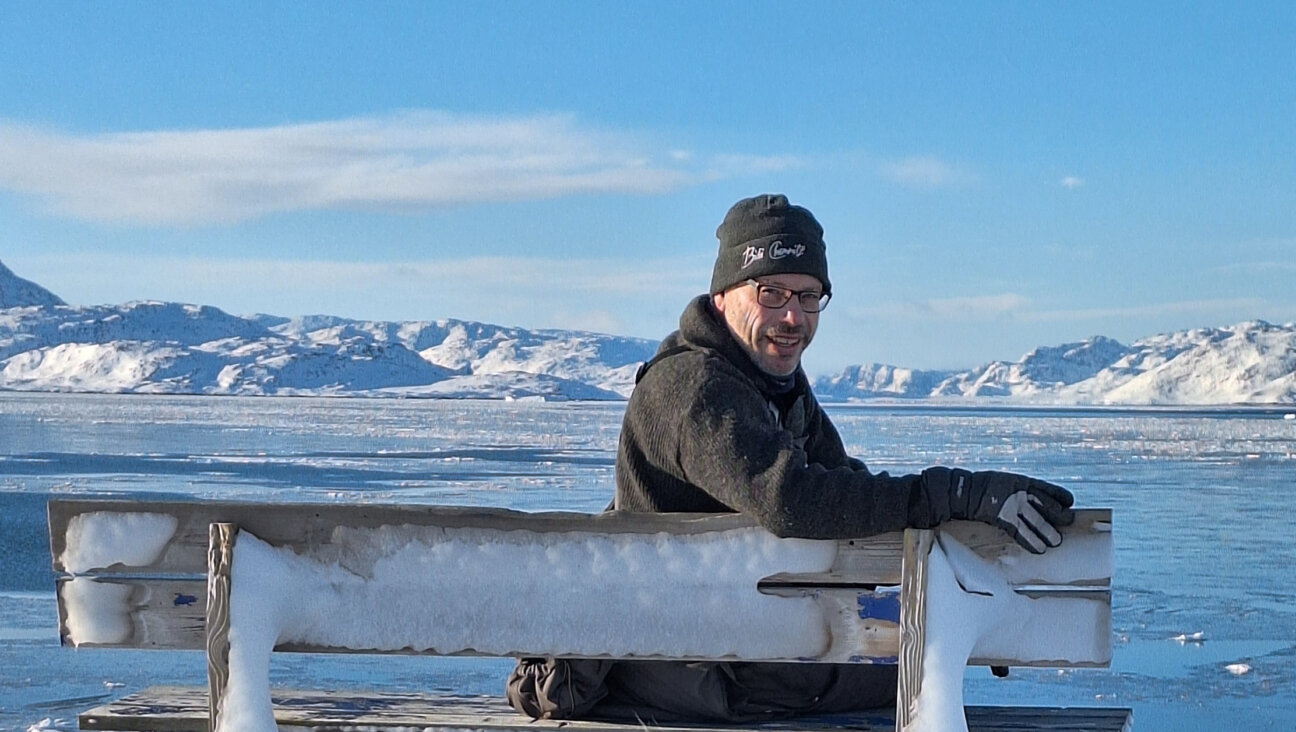Odessa Jews Lay Low as Chaos Engulfs Ukraine Oasis of Calm

Image by getty images
(JTA) — Although Ukraine has been charting a bloody course toward civil war for months, Irina Zborovskaya had always felt safe in Odessa.
Living in a cosmopolitan city where hate crimes are rare and a tradition of tolerance for minorities and dissidents prevails, many Odessites were lulled into a false sense of security by the absence of violence witnessed elsewhere in their country since November, when protests began that ultimately would lead to the ouster of President Viktor Yanukovych.
But that changed on May 2, when one of the worst bloodbaths to hit Ukraine in recent months erupted in downtown Odessa. Some 42 people died in street fights there between pro-Russian protesters and supporters of the Ukrainian government, many of them perishing after a building was set ablaze.
“Even after all that’s been happening in Ukraine, it had remained unthinkable to us that one Odessite could kill another Odessite like that,” said Zborovskaya, the director of the local office of the American Jewish Joint Distribution Committee.
“In Odessa, there was more calm than in other places,” she said. “But now I cannot think of a single person here who isn’t worried.”
With its bubbling night life, progressive cultural scene and garden cafe culture, Odessa had remained mostly quiet throughout the upheaval that has engulfed much of Ukraine. The city’s Jews — estimates of their population range from 30,000 to 45,000 — saw almost none of the anti-Jewish violence that accompanied the chaos in Kiev, where four serious assaults of Jews have occurred since November. In two eastern Ukrainian cities, unidentified individuals tried to torch synagogues.
But since May 2, the Jewish community of Odessa has been partially paralyzed. While the new Beit Grand Jewish community center is open for regular activities, all special events have been canceled.
The center is home to a kindergarten located about 100 yards from where hundreds of protesters stormed a police headquarters on May 4. The suspension will continue until at least May 25, when Ukraine is due to hold its first elections since the revolution.
“It’s not safe to have people gather in one place right now,” Zborovskaya said.
It appears that no Jews have died as a result of the violence in Odessa, but the eruption has led to reports that local Jewish community leaders were working on an emergency evacuation plan for the city’s Jews. Berl (Boleslav) Kapulkin, a spokesman for the Jewish community of Odessa, said the reports, which appeared last week in the Israeli media, were the result of a misunderstanding. The community has no immediate evacuation plans, Kapulkin said, but there are discussions underway about evacuating in the future if the situation escalates.
“If the conflict will grow here into a real war, we, together with all the [Jewish] community, will leave,” Kapulkin said. “But we pray that this does not happen and that God gives peace to Ukraine.”
Talk of evacuation was particularly shocking given that many see Odessa as the site of a Jewish cultural revival. Since 2010, the city has held four Limmud Jewish learning conferences with hundreds of participants. The community is also about to open its second Jewish museum; the capital Kiev has none.
“We hope this growth will continue,” Zborovskaya said, “but right now it is hard to make predictions.”
According to the Jewish Agency, 762 Ukrainian Jews immigrated to Israel in the first quarter of 2014 — an increase of 52 percent over the average of 500 people who immigrated in the corresponding periods of 2009 to 2013. In that period, Israel saw the arrival of 1,900 immigrants on average per year from Ukraine, according to Israel’s absorption ministry.
But many Ukrainian Jews have decided to stay despite the hardships and insecurity, said Tzvi Arieli, a former Israeli soldier who lives in Kiev and recently set up a small Jewish self-defense unit there.
“Those who wanted to come, came,” Arieli said in reference to the mass immigration to Israel in the 1990s of hundreds of thousands of Ukrainian Jews and their family members. “Those who stay, they want to stay.”
One who has resolved to stay is Pavel Kozlenko, the 43-year-old head of the Odessa Holocaust Museum and future director of the city’s second Jewish museum. Kozlenko said local Jews are bound to their city by their rich history. Before the Holocaust, there were 200,000 Jews in Odessa, constituting a third of its population, according to Yad Vashem. Kozlenko said he wouldn’t leave Odessa, even though he was shocked by the recent violence.
“I can’t reconcile what I saw with my belief in this city of tolerance, which is home to more than a hundred nationalities, which produced such outstanding personalities of science, culture and art,” he said. “I thought such events could not happen here.”














